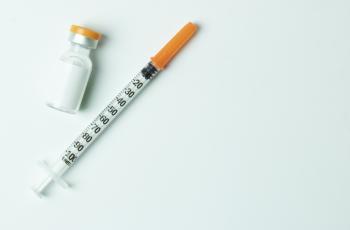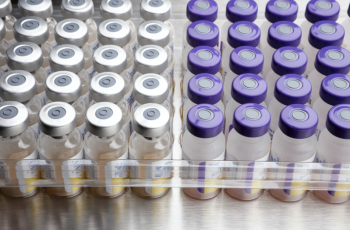Harris County, Texas, to Proceed with Lawsuit Against Insulin Manufacturers and PBMs over Insulin Pricing Scheme
In September 2020, a federal judge ruled that Harris County, Texas, can move forward with a lawsuit against several drug manufacturers and pharmacy benefit managers for conspiring to artificially inflate the price of insulin.
Harris County, which includes Houston and is the most populous county in Texas, claims that residents were “fraudulently overcharged” for significant price increases of insulin. In just one year, from 2014 to 2015, Harris County’s spending on diabetes medications increased over 60 percent.
Why exactly is Harris County filing a lawsuit, and who is it against?
County officials have specifically accused the three insulin drug makers, Eli Lilly, Novo Nordisk, and Sanofi, as well as four pharmacy benefit managers (PBMs), Aetna Rx, CVS Caremark, Express Scripts, and OptumRx, of engaging in an insulin price-fixing conspiracy.
PBMs act as the “middlemen” between payers and drug manufacturers. They are hired by insurance companies, large employers, and other payers to negotiate with drug manufacturers over prescription drug benefits. PBMs can determine the total drug costs for payers, and they control which drugs are included on an insurance company’s formulary, which is its list of approved medications. The formulary influences the medications that patients use and determines the patient’s out-of-pocket costs for those drugs.
Harris County pays for the healthcare of its employees and their dependents and of the people in the county jail. The lawsuit claims that the scheme works like this specifically:
- Insulin manufacturers work with PBMs to artificially raise the price of their insulins, and then rebate a large portion of that price back to the PBM, which pockets the money.
- In return for those payments, PBMs then give drug makers preferred placement on their national formularies, leading directly to more sales of their insulins.
- At the same time, PBMs are paid by health plans, such as Harris County, to manage their prescription benefits. Instead of passing on those payments from the health plans to the pharmacies – which would lower the out-of-pocket costs of insulin for patients – PBMs keep a portion of that payment. This is also known as “spread pricing.” Many PBMs have their own mail-order pharmacies, as well, so they can use this pocketed difference to inflate the prices of insulin sold through their own pharmacies.
“It’s a perfect storm,” Joanne Cicala, an attorney who represents Harris County, said to STAT News. “There’s no competition, you have three manufacturers dominating the supply chain and, mostly, three pharmacy benefit managers that have dominated the form of reimbursement for approximately 250 million Americans. The combined market power is really extraordinary… So you’ve got to talk about the PBMs, too, because they’re the ones that create the incentive structure.”
However, the insulin manufacturers feel differently. “We’re disappointed in the court’s ruling on Novo Nordisk’s motion to dismiss the complaint, as we find the claims to be baseless and wholly without merit,” a Novo Nordisk spokesperson says to STAT News. “We have a longstanding commitment to supporting patients’ access to our medicines.”
How does this lawsuit differ from other insulin-related lawsuits and legislation?
Currently, fourteen states have passed laws that cap insulin copayments at or under $100 per month, with the ones in bold having just gone into effect on January 1, 2021: Colorado, Connecticut, Delaware, Illinois, Maine, Minnesota, New Mexico, New Hampshire, New York, Utah, Washington, Virginia, and West Virginia. Vermont passed an insulin price cap law that goes into effect in 2022.
These state-level insulin pricing laws hold insulin manufacturers accountable for reducing insulin costs. In contrast, Harris County’s lawsuit is the first to make allegations against both insulin manufacturers and PBMs – a stronger argument that holds more responsible stakeholders accountable.
For example, the Minnesota Insulin Affordability Act, also known as the “Alec Smith Insulin Affordability Act,” was passed on April 14, 2020 to combat insulin price gouging. The law requires drug manufacturers, with some government assistance, to provide individuals in urgent need with a 30-day supply of insulin for $35. For uninsured and underinsured patients, the law also puts in place longer-term affordability programs.
However, the Pharmaceutical Research and Manufacturers of America (PhRMA) filed a lawsuit in June challenging Minnesota’s Insulin Affordability Act, in part because it does not hold all stakeholders in insulin pricing accountable for lowering insulin costs. Though we have yet to see insulin price-cap legislation that targets PBMs, the lawsuit in Harris County is a promising example of a more robust effort to reduce the cost of insulin by holding all players accountable.
Where do we go from here?
While this lawsuit is a big step towards price transparency in Texas, more work needs to be done to make insulin affordable for everyone. In addition to insulin manufacturers and PBMs, insurance companies also play a role in the high cost of insulin. PBMs pay insurers portions of the rebates described above in exchange for optimal placement on their formularies. The size of these rebates are negotiated as a percentage of the list insulin prices, which incentivizes manufacturers, PBMs, and payers to keep insulin prices high. Insurers also offer high-deductible health plans which seem affordable because of their low premiums, but they can be very expensive for people with diabetes. High deductible health plans require people to pay thousands of dollars out-of-pocket ($1,400 minimum for individuals) for their healthcare before the insurance company covers costs. Many people with diabetes on this type of insurance plan must pay the list price for insulin, which is unaffordable for many Americans.
At diaTribe, we advocate for making insulin affordable for all people with diabetes. The influx of state-level insulin affordability legislation is a promising step toward accessible diabetes therapies for privately-insured Americans. If states continue to lower the price of insulin, we are more likely to see insulin affordability legislation at the federal level. In the meantime, we must continue to hold all stakeholders accountable for reducing the cost of insulin.

